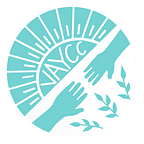My Journey Overcoming the Model Minority Stereotype
Lalitha Aiyar
My relationship with my identity has long been rocky. As a first-generation Indian-American, my life has been a balancing act — how Indian should I be? How American should I be? What does it truly mean to be either? Are they dichotomous? My answers to these questions have fluctuated wildly throughout my life.
As an impressionable elementary school student in a predominantly white area, I initially defined my Indian roots largely according to the model minority stereotype, or the idea of universal socioeconomic success among Asian-Americans. At first, it seemed like a natural fit: my parents are both scientists who came to the United States on H1-B worker visas, and I am nerdy.
My parents also adopted other elements of the model minority stereotype — namely, the notion that Asian-Americans avoid rocking the boat — out of a desire to assimilate. Because they wanted the best for me as an American citizen, they passed this on. The most memorable example of this was my father’s response to me starting a petition (well-intentioned, but poorly designed in retrospect) to ban puppy mills in the third grade. I distinctly remember a conversation with him one night in which he told me that instead of petitioning, the best course of action was to work within the system: to work hard in school, join the government, and then enact change.
It also felt easiest for me to define myself so simplistically when I felt othered both as an Indian and as a Hindu (my experiences with various Christian peers’ attempts to proselytize me cannot be adequately detailed in this piece alone, but they frequently included variants of the phrases “You only believe in statues!” and “You’re going to Hell!”.
Defining myself in this way led me to internalize the stereotype, particularly the notion that Asians aren’t outspoken. I didn’t think of Asians as activists, entertainers, or anything that involved drawing attention to oneself. Part of what is so insidious about the model minority stereotype, and allows it to be embraced by Asians like me, is that at first, it seems positive. Good at math? Polite and hard working? Compared to other stereotypes, which antagonize other BIPOC, these are mild.
However, internalizing this can, in my experience, lead Asian-Americans to silence themselves. My realization that I had internalized the model minority stereotype didn’t immediately fix the issue. Instead, I overcompensated. I swung to the other end of the metaphorical pendulum, openly rejecting my faith and culture in an attempt to assimilate to my conflated ideas of being American and being white.
My affinity for STEM was a source of inner turmoil because it played right into stereotypes. Around non-Indian peers, I lampooned my culture for acceptance. When I met other Indian diasporas, who had held onto culture far better than I had (between solely defining myself as a stereotype and then pushing away my culture completely, I had lost much of it), I didn’t feel at home like I had hoped. Instead, I felt even more ostracized.
Defensive, I played up how “American” or “whitewashed” I was in a horrible intersection of cultural directionlessness and the desire not to be like “other girls” — the intersection of internalized racism and misogyny.
As a part of the national conversation on race surrounding the Black Lives Matter movement, some have brought up the model minority stereotype and its function as a tool of white supremacy. As an individual, I’m aiming to find a middle ground in which I can simultaneously embrace my culture, my faith, and who I am outside of these things while also defying the stereotype which has not only been a source of inner turmoil but has also been weaponized against other BIPOC.
For me, a way to do this was through activism. By joining the Virginia Youth Climate Cooperative as an organizer, I directly contradicted the “safe” path my father had lovingly laid out for me all those years ago while honoring who I am. I care about science and justice, and activism is a way for me to meaningfully affect change regarding these issues.
Beyond my journey to activism, diversity is badly needed within environmental justice circles. In the United States, environmental racism means that Black and Latinx communities are disproportionately affected by climate issues. Internationally many of the garment workers exploited by fast fashion companies are South Asian. Furthermore, climate change overall disproportionately affects the Global South.
This is a very broad subject and I have hardly scratched the surface of the problems with the model minority stereotype in this piece. For example, the idea of the “model minority” ignores the vast inequality among Asian-American subgroups, the effect of US immigration policy on which Asians can immigrate at all, and many other factors.
As I have progressed, I’ve also grown in my understanding of the generational gap that separates my parents and me in terms of how we consider not only issues like the idea of the model minority, but also other issues, like cultural appropriation and microaggressions.
I would like to emphasize that I am one individual and that my experiences are not representative of the entire Asian community, nor the Indian-American community. I am still learning (as well as unlearning) and growing. I still cannot say what it means to be Indian or American, but I realize that there is no dichotomy and that I can be both simultaneously — as people, we cannot be defined by one-dimensional stereotypes, and we can embody cultures new and old.
For other children of immigrants, particularly South Asian women, I highly recommend following @browngirltherapy on Instagram for mental health resources specifically aimed at the immigrant and bicultural experience.
Lalitha Aiyar is an intersectional feminist and amateur researcher. She is interested in developing sustainable energy sources and materials, as well as involving more women in STEM. She currently lives in Virginia Beach, Virginia.
